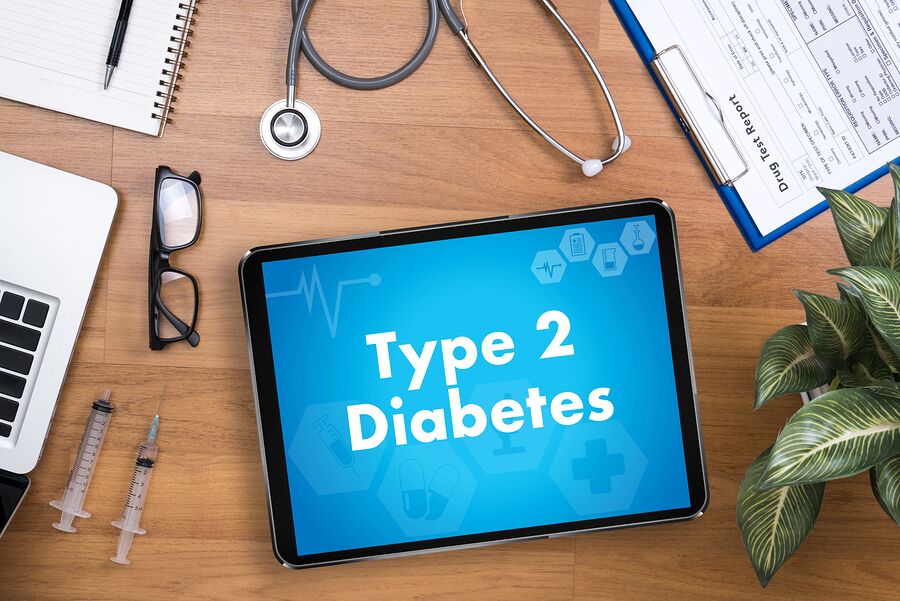When your older family member is tested for high blood sugar, you may hear the doctor refer to the results of the test as A1C or eAG. If the older adult has seen more than one doctor, you may have even heard both terms used. That could leave you wondering if there’s a difference between the two and, if so, what is it?

What is A1C?
The A1C blood test is used to determine how well blood glucose has been controlled over the last few months. It is used to test for diabetes and to see how well a person’s diabetes treatment is working. To determine A1C the test measures the amount of glucose that is attached to hemoglobin, which is a protein found in red blood cells. Red blood cells live in the bloodstream for about 4 months, so by measuring glucose attached to blood cells, doctors are able to determine an average blood glucose level.
Because daily blood glucose readings can vary based on the activity a person engages in and the foods they eat, an A1C test gives doctors a more accurate idea of how well treatment is working. It also helps to determine whether the patient’s self-tests have been accurate. In addition, doctors can use the test results to talk to patients about how the lifestyle choices they make affect their blood sugar.
What is eAG?
eAG is very similar to A1C in that it offers an average reading of blood sugar. However, it is often easier for people with diabetes to understand because the results are reported in the same way blood sugar monitors report the results of tests taken at home.
A1C reports the percentage of red blood cells that have glucose attached to them. For most people, it’s hard to figure out how that reading corresponds to what they see on their monitors. Fortunately, researchers determined a way to use the results of the A1C test to calculate an estimated average glucose, or eAG, that looks the same as what patients see on their home monitors.
Regardless of how the results are reported, it’s important that older adults with diabetes know how well their treatment plan is working and what they can do to improve their numbers. Senior care can assist them to take the appropriate steps. A senior care provider can plan and cook healthy meals that follow the eating guidelines suggested by the doctor or dietician. Senior care providers can also increase physical activity in your aging relative by keeping them busy around the house, going for walks with them, or taking them to an exercise class designed for older adults.
The staff at Home Care Matters is available to talk with you and your family about all of your needs. Home Care Matters is a home care agency providing quality and affordable Home Health Care in Johns Creek, GA, and surrounding areas. Call (770) 965.4004 for more information.
Source:
Diabetes.org
Kaiserpermanente.org
Verywellhealth.com
Valerie has the unique experience with home care as she has experienced it from both ends of the spectrum, as a caregiver and as needing care herself as a cancer survivor. Valerie says, “Taking care of someone you love is a physically, mentally and demanding labor of love.Taking care of my mom was the hardest thing I have ever done. It has given me an insight and perspective not many people understand unless you are doing it or have done it.I loved taking care of my mom.I love helping others take care of their love ones too.And now that I’ve been sick, it’s given me a whole new level of empathy and understanding for those who are sick and need help.”
Valerie’s schedule varies daily, but she loves visiting with our clients, families, caregivers, our network partners and being in the office.Says Valerie, “Every day is different, but I wake up excited about what we do, inspired by our team, clients and caregivers.I strive to be a resource to the community.I love my team and I love what we do every day. I like to think my mom would be proud.”
You can reach Valerie by email (Valerie@homecarematters.com) or in our office (770.965.4004).
- How In-Home Alzheimer’s Care Helps Your Parent Stay Safe and Comfortable - December 26, 2025
- After the Fall: How Home Care Helps Seniors Recover Safely at Home - December 19, 2025
- Supporting Seniors with Memory Challenges Through Compassionate Senior Home Care - December 12, 2025
